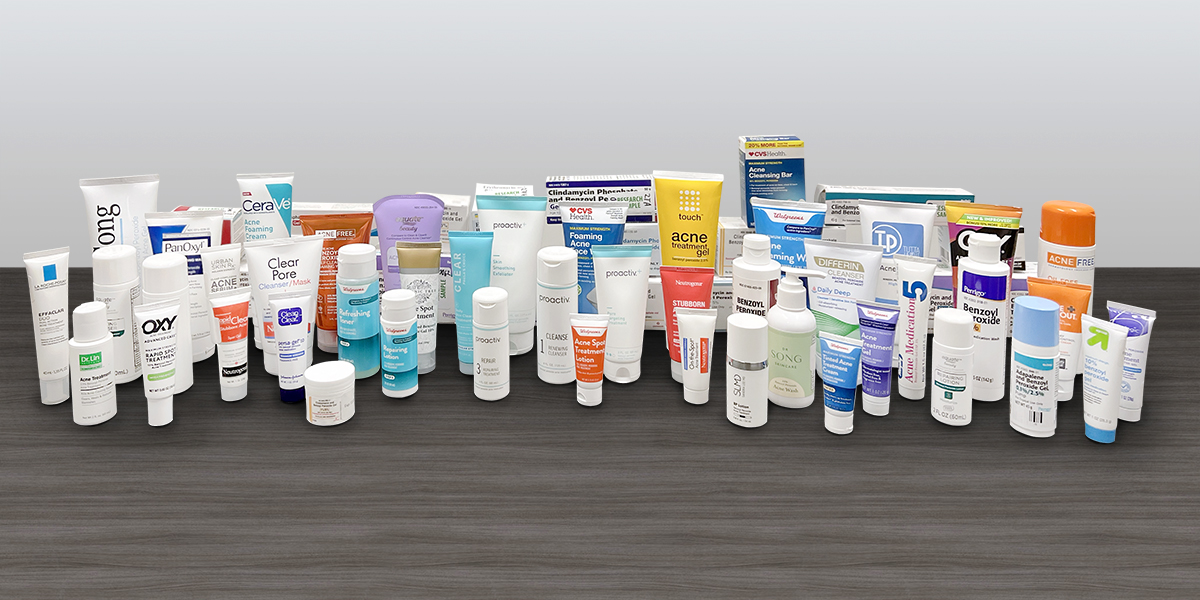FDA Citizen Petition #8: Benzene in Benzoyl Peroxide Products
Valisure’s investigation into benzoyl peroxide (BPO) acne treatment products uncovered a new and deeply concerning mechanism of benzene exposure: the carcinogen is not merely a contaminant, but is formed through the degradation of the active drug itself.
Unlike previous findings of benzene in products like sunscreens or hand sanitizers—where contamination originated from raw materials—this study demonstrated that benzoyl peroxide can chemically degrade into benzene under normal conditions, affecting a broad swath of BPO products currently on the market.
Testing showed that:
- Benzene levels reached over 800 times the FDA’s conditional 2.0 ppm limit
- Elevated benzene was detected inside products and also leaking into surrounding air, posing an inhalation risk
- A single Proactiv® product incubated at 70°C (158°F)—equivalent to a hot car—released benzene at concentrations ~1,270 times higher than the EPA’s threshold for increased cancer risk via long-term inhalation
Valisure’s testing included temperature-controlled stability studies at 37°C, 50°C, and 70°C—representing body heat, standard pharmaceutical stability conditions, and extreme environmental heat, respectively. These studies further confirmed the instability of BPO and the widespread potential for benzene formation under real-world storage conditions.
Valisure submitted a detailed FDA Citizen Petition, urging the agency to take action similar to its market withdrawal of ranitidine (Zantac) products in 2020. The petition included data on hundreds of tested products and called for immediate regulatory and industry response.
Full Petition & Supporting Materials:
- Press Release - Valisure's Detection of Benzene in Benzoyl Peroxide
- Valisure’s FDA Citizen Petition - Valisure’s FDA Citizen Petition on Benzoyl Peroxide Acne Products
- Environmental Health Perspectives - Benzoyl Peroxide Drug Products Form Benzene
- Journal of Investigative Dermatology - Evaluation of Benzene Presence and Formation in Benzoyl Peroxide Drug Products
- Journal of Investigative Dermatology - A Disproportionality Analysis on Benzoyl Peroxide and Its Risk of Malignancy Using the FDA Adverse Event Reporting System
- Please read about Responsible Disposal of Potentially Contaminated Products
- Please Read about The Importance of Stability Testing
- Summary Timeline of consumer product recalls due to benzene
Media Coverage Highlights:
- ABC News: Concern about carcinogens in some acne creams raised by private lab
- Allure: What We Really Know About Benzoyl Peroxide Acne Treatments and Benzene
- Axios: Private lab finds carcinogen in common acne treatments
- Bloomberg Exclusive:Chemical Linked to Cancer Found in Acne Creams Including Proactiv, Clearasil
- Bloomberg TV: Chemical Linked to Cancer Found in Acne Creams, Testing Lab Says
- Becker's Hospital Review: Common acne products contain carcinogen, lab alerts FDA
- CBS News: Benzene, a known carcinogen, found in some popular acne products, lab says. Here's what to know.
- C&EN: Unwanted reaction causes benzene to form in acne medication, lab finds
- CNN: Cancer-causing chemical can form at ‘unacceptably high levels’ in certain acne products, independent lab claims
- Cosmetic Business: Cancer-causing benzene found in Clinique and Clearasil acne treatments
- DailyMail: High levels of cancer-causing chemical found in zit creams - including Clinique and Clearasil
- Dermatology Times: BREAKING NEWS: Benzene Found in Various Acne Products; Valisure Files Petition With FDA to Recall Treatments
- Dermatology Times: Valisure's David Light Unpacks Benzene Findings, Stability Testing, and Discourse
- Drug Store News: Valisure detects human carcinogen in benzoyl peroxide acne treatments
- Endpoints News: Valisure pressures FDA to recall acne treatments after finding carcinogen
- Fast Company: Cancer-causing benzene was found in Clinique, Clearasil, and Target acne products
- Fox News: Cancer-causing chemical linked to popular acne products, lab reports
- Fortune: Popular acne products from Proactiv, Clinique and Target contain cancer-linked chemical benzene
- HAPPI: Valisure Finds Benzene in Benzoyl Peroxide Acne Treatments
- HBW Insight: In Benzoyl Peroxide Stability Study, Benzene Forms At 'Hundreds' PPM 'In A Few Weeks' – Valisure
- New York Magazine - The Cut: A Carcinogen Was Found in Popular Acne Products
- NewsNation: Cancer-causing benzene found in acne products: Independent lab
- People: Cancer-Causing Chemicals Found in Acne Treatments from Clearasil, Clinique, Target
- Reuters: Cancer-causing chemical found in Clinique, Clearasil acne treatments, U.S. lab reports
- TIME Magazine: Popular Acne-Treatment Products Found to Contain High Levels of Carcinogenic Chemical
- MedPage Today: Benzene Can Form in Acne Treatments, Lab Finds
- Newsweek: List of Face Products With Chemical Linked to Cancer
- New York Post: Acne creams including Clinique, Proactiv and Clearasil contain chemical linked to cancer: study
- USA Today: Cancer-causing chemical found in skincare brands including Target, Proactive, Clearasil
- WWD: Benzene Detected in Products From Proactiv, Clinique, CeraVe




